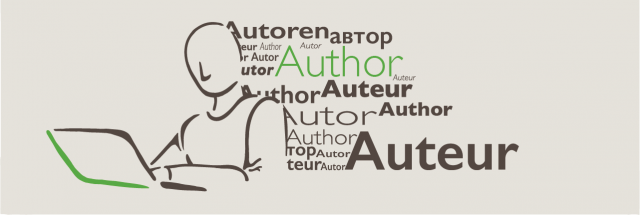Four British journalists spoke about media ethics when they were invited to address students at the Lincoln School of Journalism at the University of Lincoln, UK, on 1 March.
 Magnus Linklater, editor of the Scottish edition of The Times, the former BBC and Independent Television News anchorman Martyn Lewis, Pam Jenner, for many years a columnist on the Cambridge Evening News, and Michael Smith, freelance journalist and obituarist, were invited to the university by the Head of the School, Professor John Tulloch, and by Professor of Journalism Richard Lance Keeble. The journalists, representing the International Communications Forum, were accompanied by ICF’s Executive Director Robin Williamson.
Magnus Linklater, editor of the Scottish edition of The Times, the former BBC and Independent Television News anchorman Martyn Lewis, Pam Jenner, for many years a columnist on the Cambridge Evening News, and Michael Smith, freelance journalist and obituarist, were invited to the university by the Head of the School, Professor John Tulloch, and by Professor of Journalism Richard Lance Keeble. The journalists, representing the International Communications Forum, were accompanied by ICF’s Executive Director Robin Williamson.
The journalists spoke to 100 students in three one-hour sessions with second and third-year journalism students and to a public audience in the evening. They were also interviewed for 15 minutes on Siren FM, the university’s community radio station which broadcasts to the Lincoln area and on the web.
Ethical dilemmas in the media, the balance between bad and good news, the impact of online media on journalism, and the personal integrity of journalists were amongst the issues raised. How, for instance, do journalists retain their personal integrity when put under pressure by editors? How do journalists handle the so-called ‘death knock’ when they have to knock on the door of families who have suffered a sudden bereavement, such as in vehicle accidents?
Martyn Lewis told about the time when he was a young reporter for ITN (Independent Television News) in Glasgow. It was the beginning of the ‘Troubles’ in Northern Ireland. Two of the first British soldiers to be killed there were brothers. Their mother lived in Glasgow and Lewis’s editors insisted that he see her within hours. He was deeply reluctant to do so. He might have been shunned by the family. Instead he found the soldiers’ mother wanted to talk and Lewis suggested that this was perhaps therapeutic for her.
Pam Jenner had similar experiences, though she admitted that she had once lied to a ‘bullying’ editor who told her to go back to a bereavement victim, having already been turned away once. She told the editor the person was not at home, though in fact she had never gone there.
 Magnus Linklater said that bad news could turn into good news. He illustrated this with the case of the Sunday Times’ campaign to expose the dangers of the thalidomide drug for pregnant women which led to serious deformities in their children. The paper’s four-year campaign had led to financial compensation and justice for the victims.
Magnus Linklater said that bad news could turn into good news. He illustrated this with the case of the Sunday Times’ campaign to expose the dangers of the thalidomide drug for pregnant women which led to serious deformities in their children. The paper’s four-year campaign had led to financial compensation and justice for the victims.
This was the second annual visit of the ICF to Lincoln University following Professor Keeble’s meeting with ICF Chairman Bernard Margueritte several years ago. ICF’s visit is expected to be repeated as an annual event. A group of students from the journalism school, which is one of the largest in the country, filmed the ICF visit to the university throughout the day.
Professor Keeble is editing an anthology of articles written by journalists and authors on their ethical views of the media, to be published by Troubadour Press later this year, as a tribute to the late ICF founder Bill Porter.

